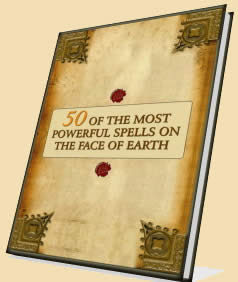 The history of voodoo in New Orleans dates back two Centuries, to a time when West African slaves arrived in New Orleans, bringing with them the ancient religion Voodoo that originated some 7,000 years ago. In the 1830s, Marie Laveau became the first commercial Voodoo Queen, declaring herself Pope of Voodoo. Laveau was a devout Catholic who is said to have attended mass every day, and was allowed to hold voodoo rituals behind St. Louis Cathedral in New Orleans' French Quarter. Ceremonies were also held along Bayou St. John near the present-day City Park, and along Lake Pontchartrain. These ceremonies outside of Congo Square, performed by free black Creoles faithful to the history of voodoo, are believed to have been more ritualistic and exotic than those performed in Congo Square, which were more a celebration of African heritage than true voodoo ceremonies.
The history of voodoo in New Orleans dates back two Centuries, to a time when West African slaves arrived in New Orleans, bringing with them the ancient religion Voodoo that originated some 7,000 years ago. In the 1830s, Marie Laveau became the first commercial Voodoo Queen, declaring herself Pope of Voodoo. Laveau was a devout Catholic who is said to have attended mass every day, and was allowed to hold voodoo rituals behind St. Louis Cathedral in New Orleans' French Quarter. Ceremonies were also held along Bayou St. John near the present-day City Park, and along Lake Pontchartrain. These ceremonies outside of Congo Square, performed by free black Creoles faithful to the history of voodoo, are believed to have been more ritualistic and exotic than those performed in Congo Square, which were more a celebration of African heritage than true voodoo ceremonies.
Following the Civil War, voodoo practitioners were largely forced underground. However, even today the myth, imagery and practices of this ancient religion survive and flourish in New Orleans.
Many musicians, particularly Dr. John (who took his stage name from John "Dr. John" Montenet, an African Voodoo priest who practiced in Congo Square in the 1800s), include references to gris-gris (one of the "magic" charms of voodoo), voodoo priestesses and practices. Many folkloric remedies common in the Mississippi Delta are based on traditional voodoo, and were popularized and immortalized in blues songs -- take John the Conqueror Root for success in any endeavor, sprinkle Goofer dust in the path of enemies, or carry a black cat bone for good fortune.
Gris-gris bags, small pouches filled with a combination of herbs mixed in a proportion that is thought to bring about a desired result for the carrier, are not at all an uncommon sight on the belts of New Orleanians.
While many people dismiss voodoo as a cult or superstition, an equal number of residents truly believe in its powers and warn non-believers not to take voodoo lightly, or suffer the consequences. Ceremonies are still held in New Orleans, and various shops sell powders, oils, candles and voodoo dolls. But despite the apparent commercialization of these ancient practices, time and modernization have done nothing to diminish their power.
Books You Might Enjoy:
Anonymous - History Of Witchcraft Vol 7 Of 7
Don Karr - The Study Of Solomonic Magic In English
Aristotle - On Dreams
Julia Phillips - History Of Wicca In England




